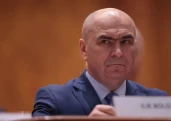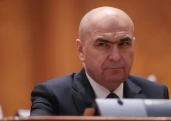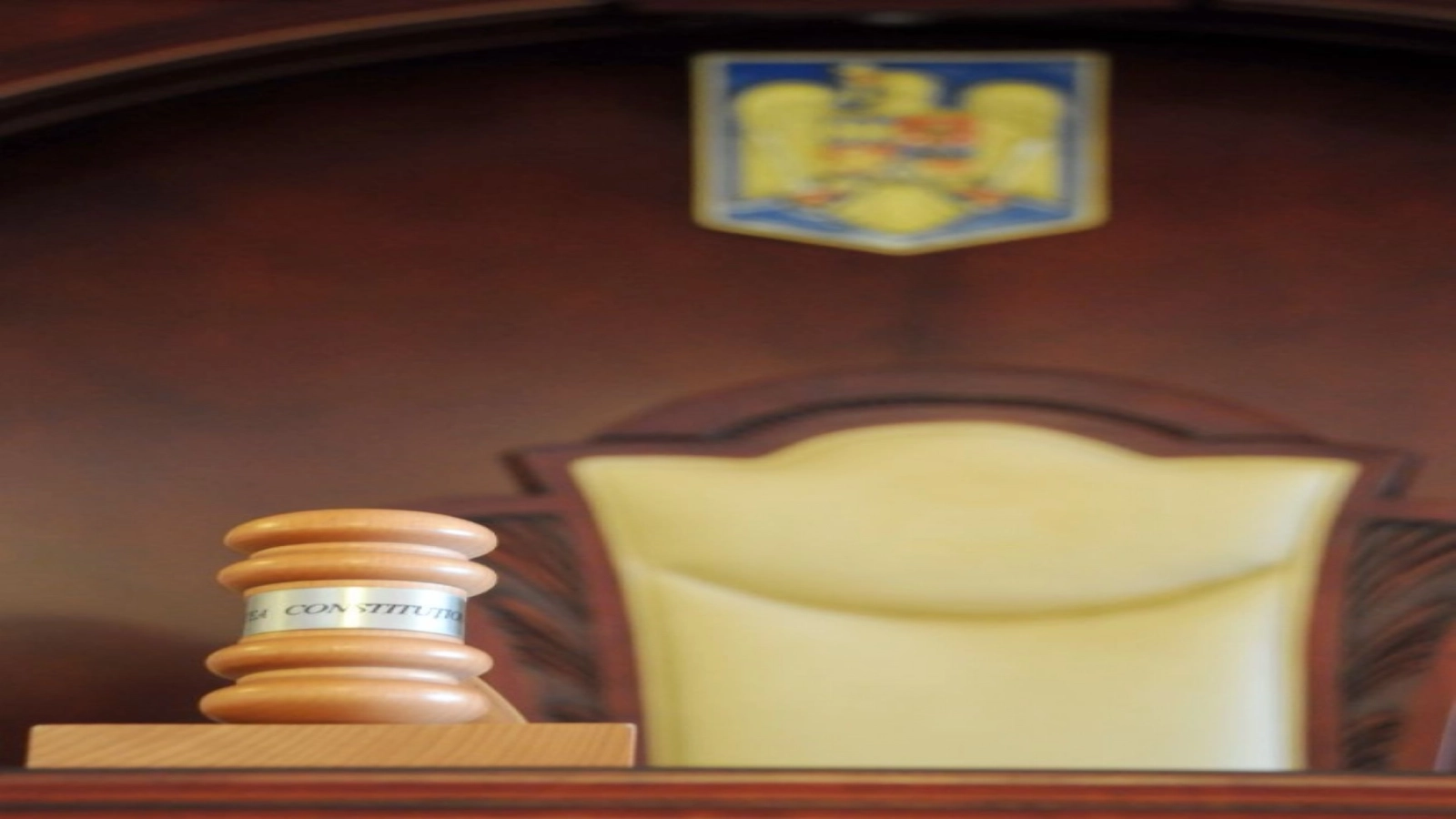The Constitutional Court of Romania (CCR) is looking on Wednesday at President Klaus Iohannis's challenge to the law providing a 3-year limitation period for offenses committed by persons holding public office that result in conflict of interest or incompatibility.
Iohannis sent to CCR a constitutional challenge to the Law amending and supplementing Law No. 161/2003 on specific measures for ensuring transparency in exercising public office and in the business milieu, for the prevention and sanctioning of corruption.
The head of the state argues that the law ushers in the possibility for mayors and deputy mayors, for the Bucharest General Mayor and deputy mayors, county or local councilors to fill positions in other areas of the private sector that are not directly related to their responsibilities.
"The purpose of Law No. 161/2003, that introduces certain incompatibilities for public offices is to ensure impartiality, protect social interest and prevent the conflict of interest in exercising such responsibilities. Therefore, it would be fair to say that the writing off certain situations of incompatibility amounts to removing the guarantee that public office is exercised with impartiality and steers away from interests that could hinder its accomplishment exclusively in the public interest. By lowering integrity standards and ignoring the Constitutional Court's case law, the Law amending and supplementing Law No. 161/2003 on specific measures for ensuring transparency in exercising public office and in the business milieu, for the prevention and sanctioning of corruption runs counter to Article l paragraph (3) of the Constitution," argues the President in the challenge.
Iohannis also refers to the UN Convention against corruption, which was also ratified by Romania, and which provides that each signatory state works out and enforces or considers - as per the fundamental principles of its judicial system - efficient and coordinated corruption prevention policies that favor the participation of the society and which reflect the principles of the rule of law, the good management of political matters and public assets, integrity, transparency and responsibility.
The President says that the phrase "in other activity areas of the private sector that are not directly related" to the responsibilities exercised as mayors or deputy mayors, Bucharest General Mayor or deputy mayor, local or county councilor has a generic character, is not clear and predictable, can lead to various interpretations and even different practices in the public local administration and that those 'other' activity areas that are not directly related to the exercised responsibilities are difficult to identify.
Iohannis mentions that according to the CCR constant case law, the law must meet three quality requirements: clarity, precision and predictability and argues that the respective piece of legislation lacks regulatory logic and creates legislative overlaps.
The President goes on to note that another provision would tie the hands of the National Integrity Agency that would no longer be able to assess and sanction the non-observance of the legal regime of incompatibilities and conflict of interest.
"In agreement with the Constitutional Court's case law, we consider that the initial goal pursued by the lawmaker, specifically that of making sure that the holders of local elected offices carry out their term under conditions of integrity, and that all those who prove contempt to the law and to the values of the community are being sieved out - is seriously harmed by the planned legislative amendment that blunts the efficiency of the fight against corruption of the local administration and of the legislative framework on integrity (Resolution No. 536/2016). The proposed amendments are not accompanied by provisions meant to dispel confusion about the applicable law as regards the procedure to acknowledge states of incompatibility or the conflict of interest of local elects or public office holders, and also creates the conditions that the procedure regulated under the special law misses its final purpose," the President said.
Iohannis explains that a provision of the regulatory act creates legislative parallelism with Law No. 144/2007, and that by setting the starting moment for the 3-year term of limitations at the date when the deeds have been perpetrated, according to Article 2.517 of the Civil Code, the regulation lacks predictability.
Iohannis argues that whereas the lawmaker has referenced the general 3-year term of limitations in the Civil Code article, according to the general regulation, the statute of limitations should run from the date the office holder was supposed to be aware of the respective state of incompatibility, according to another article of the same regulatory act.
In the opinion of the head of the state the general regime of the extinction provision overall is marred by lack of clarity and this must be sorted out particularly having in view the identification of the act that interrupts the limitation period.
Constitutional Court discusses 3-year statute of limitations for incompatibility of public office holders
Explorează subiectul
Articole Similare

1
Prime Minister Ilie Bolojan begins two-day official visit to Germany
1

6
IMM Romania releasing SME Digital Index to gauge digitalisation of microenterprises
6

10
FinMin Nazare: Economic growth in 2026 is cautiously forecast at 1pct
10

7
FinMin Nazare: Investments reach 7.2pct of GDP in 2025
7

12
Grindeanu: Package on administration and the one on economic recovery must be approved at the same time
12

11
This year's objective for all ministries is to get as much recovery, resilience money as possible (minister)
11

10
Minister Nazare to voice deficit of 6.2% of GDP for 2026, in Brussels (sources)
10

23
DefMin Miruta meets Lockheed Martin's vice president for International Strategic Operations
23

26
Moldovan national intercepted at Albita with smuggled Freon destined for Lithuania
26

11
EUR 1.3 billion allocated to Interior Ministry under SAFE program
11

12
Approximately EUR 900 million allocated to defence and civil protection under SAFE Programme (Arafat)
12

25
List of arms purchases through SAFE program: helicopters, missiles, personnel carriers, anti-aircraft systems, drones
25

8
PM Bolojan official visit to Germany, Romania's key economic partner and top foreign investor
8



















Comentează